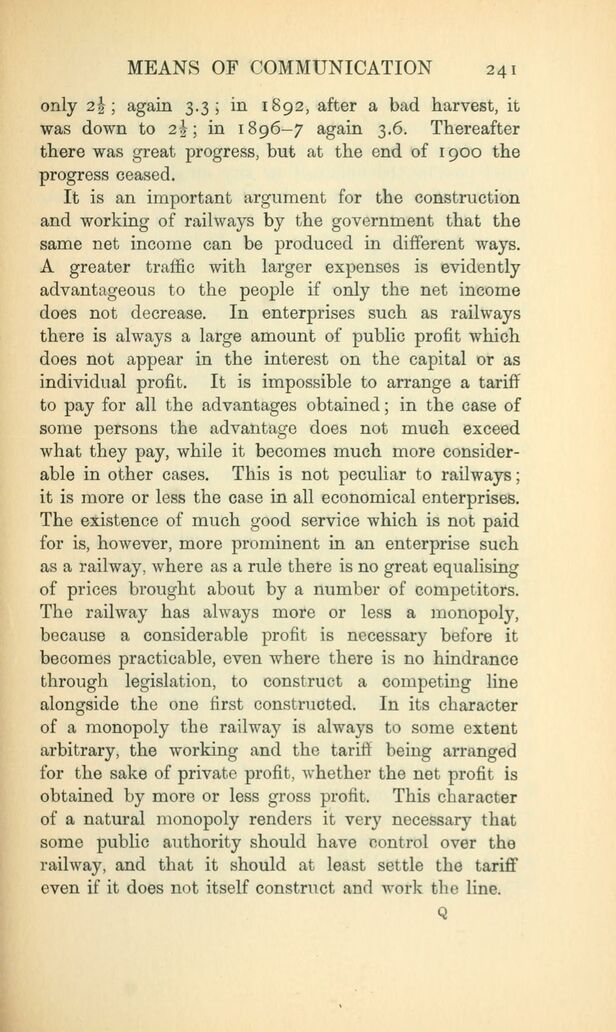
Full resolution (JPEG) - On this page / på denna sida - IX. Means of Communication

<< prev. page << föreg. sida << >> nästa sida >> next page >>
Below is the raw OCR text
from the above scanned image.
Do you see an error? Proofread the page now!
Här nedan syns maskintolkade texten från faksimilbilden ovan.
Ser du något fel? Korrekturläs sidan nu!
This page has been proofread at least once.
(diff)
(history)
Denna sida har korrekturlästs minst en gång.
(skillnad)
(historik)
only 2½; again 3.3; in 1892, after a bad harvest, it
was down to 2½; in 1896-7 again 3.6. Thereafter
there was great progress, but at the end of 1900 the
progress ceased.
It is an important argument for the construction
and working of railways by the government that the
same net income can be produced in different ways.
A greater traffic with larger expenses is evidently
advantageous to the people if only the net income
does not decrease. In enterprises such as railways
there is always a large amount of public profit which
does not appear in the interest on the capital or as
individual profit. It is impossible to arrange a tariff
to pay for all the advantages obtained; in the case of
some persons the advantage does not much exceed
what they pay, while it becomes much more considerable
in other cases. This is not peculiar to railways;
it is more or less the case in all economical enterprises.
The existence of much good service which is not paid
for is, however, more prominent in an enterprise such
as a railway, where as a rule there is no great equalising
of prices brought about by a number of competitors.
The railway has always more or less a monopoly,
because a considerable profit is necessary before it
becomes practicable, even where there is no hindrance
through legislation, to construct a competing line
alongside the one first constructed. In its character
of a monopoly the railway is always to some extent
arbitrary, the working and the tariff being arranged
for the sake of private profit, whether the net profit is
obtained by more or less gross profit. This character
of a natural monopoly renders it very necessary that
some public authority should have control over the
railway, and that it should at least settle the tariff
even if it does not itself construct and work the line.
<< prev. page << föreg. sida << >> nästa sida >> next page >>